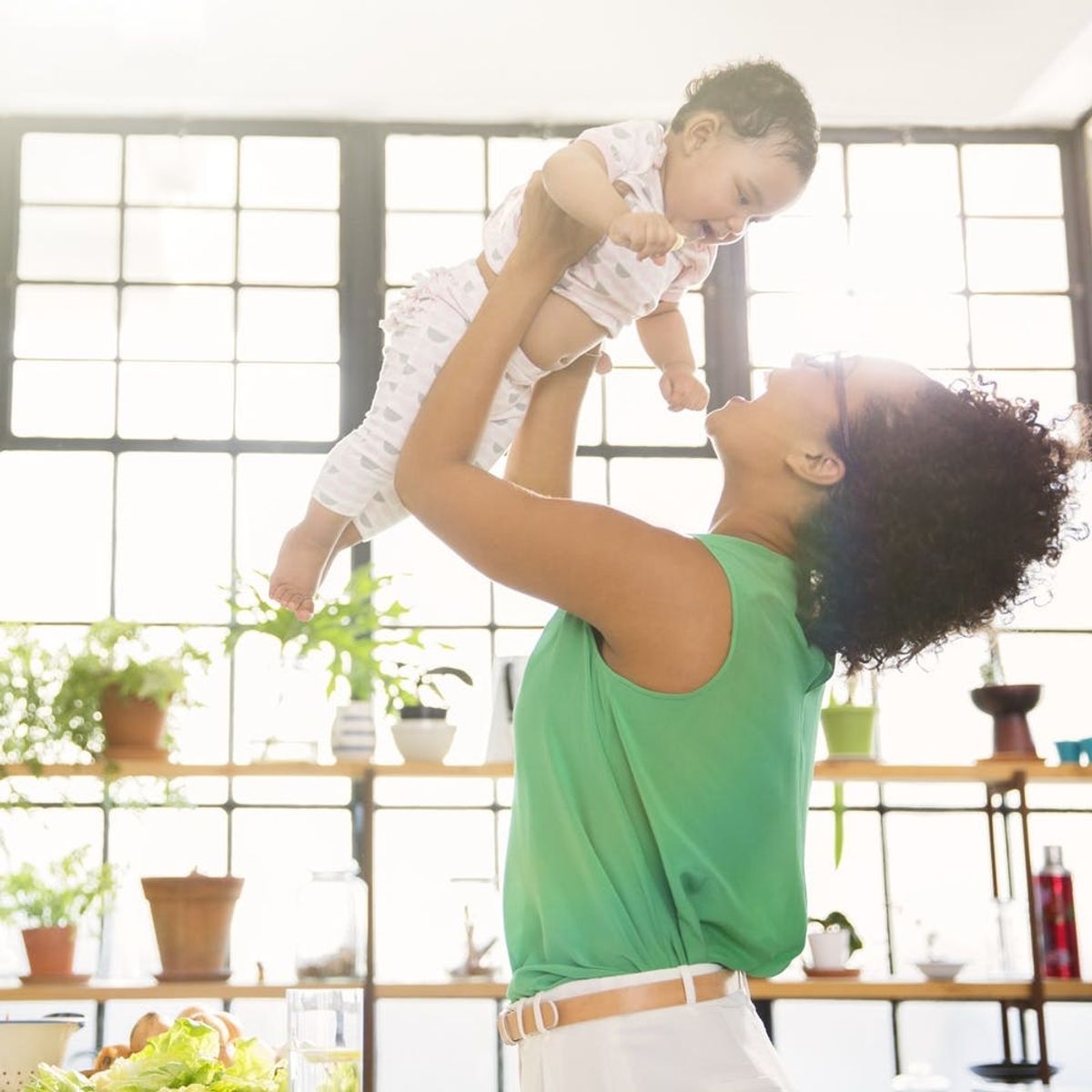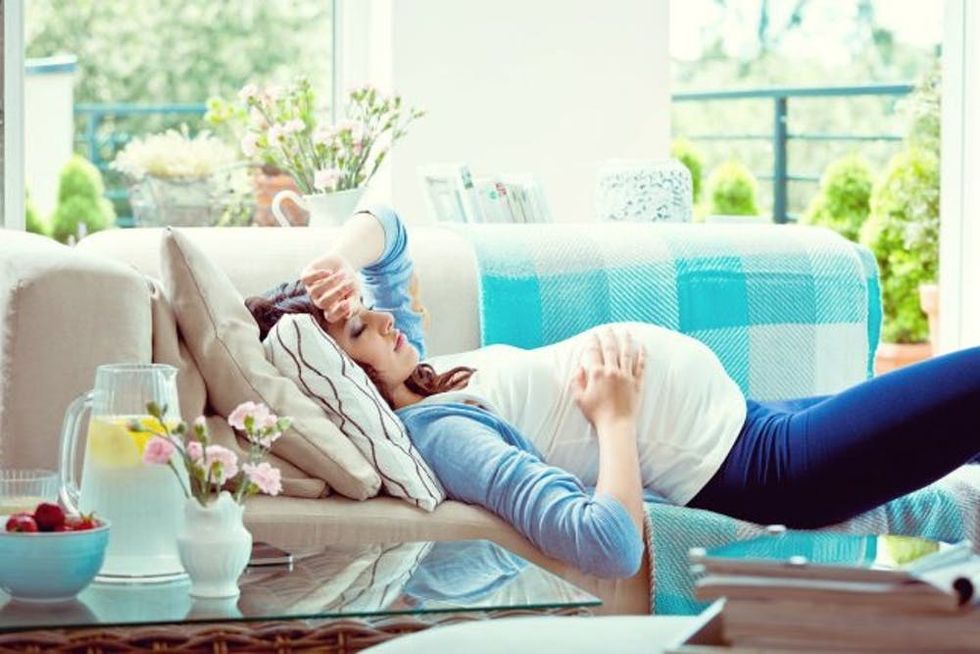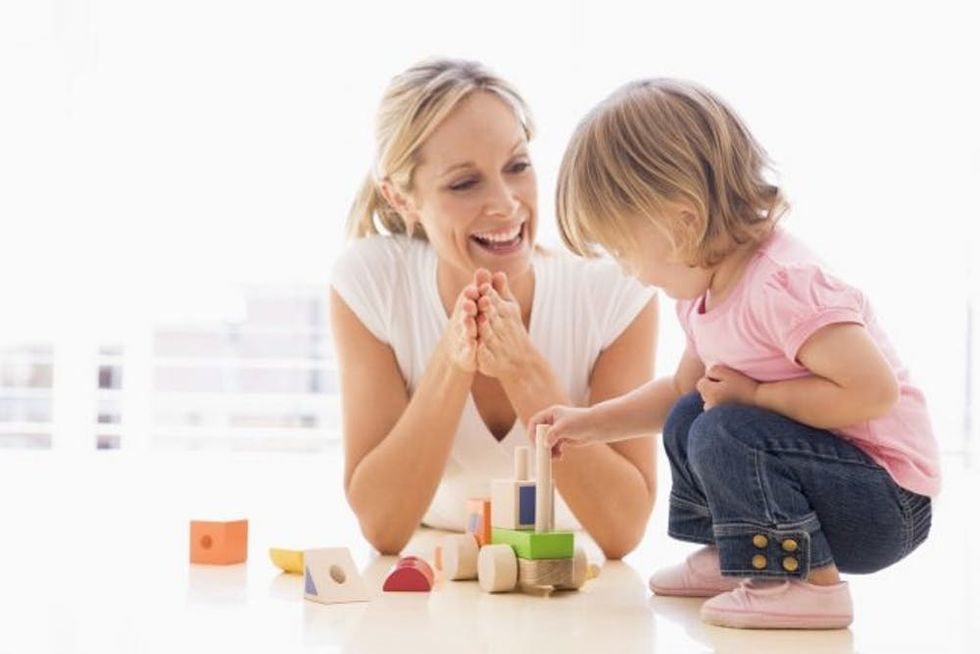How Motherhood Changed the Way the World Sees Me


Before becoming a parent, I had always associated motherhood with being gentle, patient, relaxed, content. Mothers possessed an effortlessness that seemed both illogical and inherent. I don’t know where this perception came from; my own mother didn’t necessarily embody any of these traits all at once. But somehow, I believe it to be true. Maybe it’s because society had led me to believe that once a woman becomes a mother, she is instantly only that: a mother. There are no remaining identities. No mysteries. Just, a mom.

I planned my pregnancy, which meant that I attempted to plan every element of pregnancy thereon. I downloaded every available app to prepare for any hurdle, and most of those apps helped. They taught me which diapers were most economically sound, which strollers were a racket, and how to puree food so my daughter had a diverse palate that would eventually help make her a genius triathlete. But they didn’t prepare me for how guilty I would feel when I was away from her — or worse — when I wanted to get away. I didn’t know I’d feel shame when I did anything that didn’t obviously contribute to my child’s life or my family. I didn’t know the whole world seemingly expected me to disappear as a vital, wild, and intellectual self-identifying woman once I took on the role of being a mom.
That perception of motherhood haunted me and haunts me still. It feels like the moment I became a mom, the world forgot about all my other interests and identities and expected me to do the same. But I couldn’t, and that “effortlessness” I envisioned was very obviously nonexistent. None of the issues I carried through my life disappeared or immediately resolved when my daughter was born. I was the same, but different.
The truth is, most my life I’ve been nearly feral — hungry and insatiable. Ambitious but reckless and undeniably selfish in a way that both served me and inhibited me. As prepared as I might have thought I was, I hadn’t considered the inevitability of being the same woman I was before bringing my girl into the world. I honestly thought the magic momma juju would take over my being and all the rough or provocative or incomplete parts of myself would melt away. In retrospect I can’t imagine why I ever anticipated this, or why I still sometimes feel disappointed in myself for not being “better” all the time.
I’ve mistaken my own feelings of failure or dissatisfaction for regret. How could this child, that I so wholly wanted, feel so burdensome and restrictive? Was there something unnatural about me? Did I not possess those inherent dispositions of being a “mother”?
No. I was and am still feeling the burn of a societal expectation. We’re supposed to destroy our past identities upon finding out we’re going to become moms. It’s why the guy at the bar asked me where my kid was. Not because he is genuinely wondering about the welfare of my daughter, but because, whether it’s intentional or not, he is surprised, if not shocked, to see a woman out being a woman in the absence of exhibiting any overt evidence of having a child. Maybe it’s threatening or hard to compartmentalize: the sight of a mother displaying sexuality, intellect, and ambition outside of the shadow of having a child. He didn’t ask me how my kid was, he asked me where she was. And that’s bogus. It’s dangerous and it’s inhibiting our ability to be life-teachers and empowered parents.

People talk a lot about “self-care” these days. Self-care to cope with the political climate, the environmental crisis, the social injustice, and the endlessly terrifying news articles. And with self-care comes an assumption that we are all sitting around with free time at our fingertips. But it isn’t that easy for many of us. We have bills, and meetings and deadlines and parent-teacher conferences. We raise our kids with spouses with full-time jobs that provide for our family but don’t give us free nights. Some people raise children on their FREAKING OWN. When the world asks for so much, and expects us to get by on so little, how the hell do we casually make room for “self-care?” Sometimes, when we can’t, we’re faced with a vulnerable choice: Cave to the archaic ideologies of how moms should feel and act and permit a constant layer of guilt surrounding us or live imperfectly with our hearts and histories present for our children to learn from and appreciate.
Being a mom is hard. You know that; I know that; we know that. What makes it harder is when random strangers shape how we represent motherhood.
Moms feel sexy. We have vices. We look different, identify differently and come in every shape, size, color, texture, and background. We dance to Rihanna. We go to school. We raise families with or without partners. We get pissed, bored, resentful. We wish we could run away and fall asleep with a slice of pizza on a beach somewhere.
Let’s stop forcing moms into one-dimensional labels. We are women, and humans, and people with magical identities that existed long before having children. We’re still weird, wild, imperfect creatures, only now we’re raising weird, wild, imperfect creatures too. And you know what? We’re doing a damn good job.
**
Amelia Olson writes about the more vulnerable elements of being alive and has been published on sites like Huffington Post Parents, PopSugar, Hello Giggles and The Weekly Alibi. She is a SAHM with a blog, Not Your Momma, and has one human child, three animal children and is married to a super genius husband who is as kind as he is stubborn.
(Photos via Getty)



















